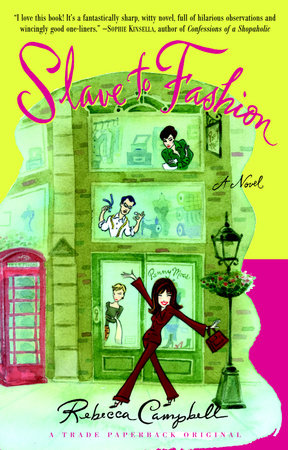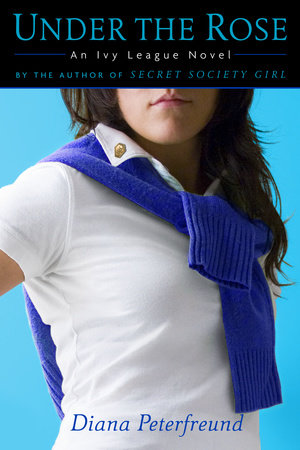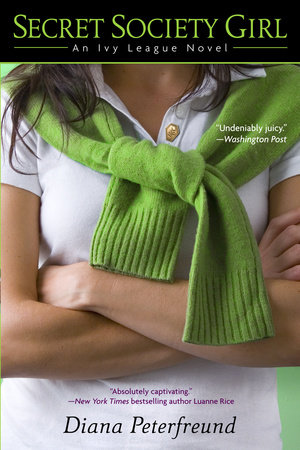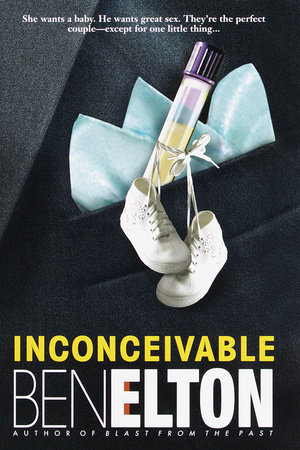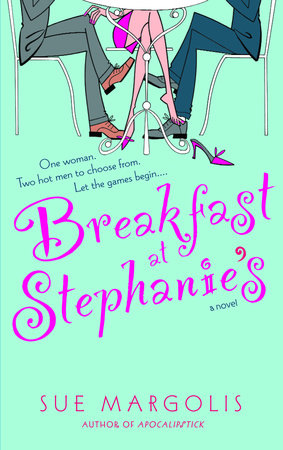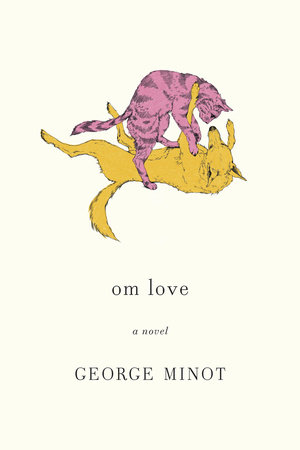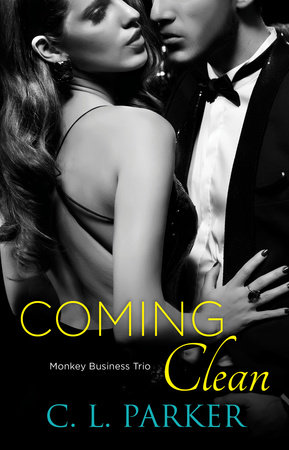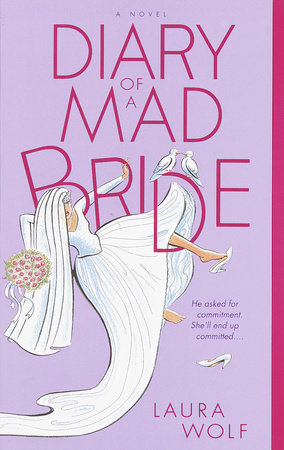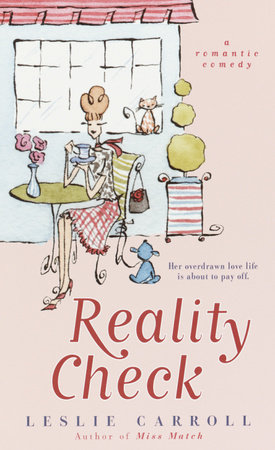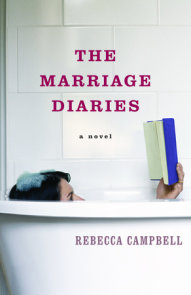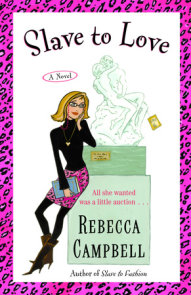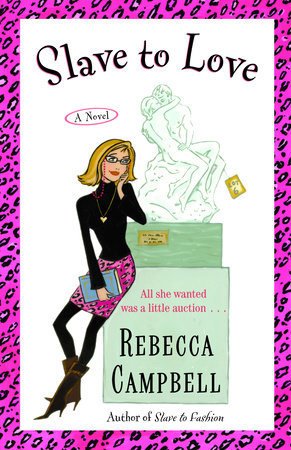Author Q&A
Interview with Rebecca Campbell
Rebecca is one of those English people blessed, or cursed, with an ‘interesting’ family. Her mother, Paddy Campbell, is a half-American former screen actress turned fashion designer. Paddy’s mother was a famously beautiful dancer, and her father one of the most celebrated newspaper cartoonists of the inter-war years. Rebecca’s father is an architect, the son of Lord Jock Campbell of Eskine. Lord Campbell was an old friend of James Bond author Ian Fleming, and as Chairman of the Booker corporation, he instigated the premier English literary prize.
So, I ask, is what’s more in the blood, fashion and glamour, or literature?
I suppose I always had both, but for a long time they were things that I rebelled against. But I think that if I’ve inherited anything, it’s the fashion side of things through Paddy. Inherited is the wrong word: it’s more that I absorbed a love of clothes from the womb onwards.
Designer, writer, mother — how do you do it?
I’m a good designer a bad mother and a fast writer.
How did you get into fashion.
Nepotism — the only way! My mother had started up a design business in the seventies, and I suppose I always knew that it would claim me, although I fought it for as long as I could. I studied at the London School of Economics: a very serious place, and I thought I’d better get a serious job when I graduated. Big mistake. I spent a terrible year working for a scary Japanese bank, surrounded by people who were much better than I was at whatever it was that I was supposed to be doing. I jumped just before I was pushed, and spent some time learning the rudiments of design, pattern cutting and all that, at the London College of Fashion. And then on to Paddy Campbell.
What are your clothes like?
Well, we like to think that we’re pretty chic and elegant. It’s mainly dresses and suits for women in business or the law. Oh, and posh weddings! We do lots of posh weddings. We’re the kind of company that never makes headlines, but the people who know about fashion know how good we are.
What about famous customers?
It’s not something that we like to talk about, but we’ve dressed princesses, and Prime Ministers’ wives, and a lot of famous actresses. But I don’t want us to sound too grand. I think what we do best is making ordinary women feel conformable and glamorous at the same time.
What made you suddenly take up writing in your thirties?
I’d always wanted to write, always felt that at some level that’s what I was. But writing takes time, and I never had any. Bizarrely it was having my son, Gabriel, that gave me some breathing space away from work to see if I could cut the mustard. And I couldn’t have done it without my husband, Anthony. He’s a wonderful writer, and he basically taught me how to write by criticising the things I showed him. But even before I’d put pen to paper, most of the characters had a kind of life. I knew all about Katy Castle, the social climbing, ruthless, but still likeable heroine. I knew all about the awful Penny, and the loathsome Milo. They were almost as real as the actual people around me. I just didn’t quite know what they were going to do with each other until I started typing.
Is the Katie castle Character based on you?
Only in the sense that all the characters a writer invents are in some way a part of her: Madam Bovary c’ et moi and all that. Katie’s much naughtier than me: she says and does things that I only think about. And she’s a lot funnier than I am — one of the great things about being a writer is that you get more time to think up a smart-alec reply. I’ve always had that thing — the what do you call it when you think of a good put down when its too late?
Esprit d’escallier?
That’s it, the spirit of the stairway. Well, Katie always gets to say just the right thing at just the right time.
What are your influences? Which other writers do you like?
One of the spurs to writing Katie Castle was reading the early novels of Evelyn Waugh. There’s such lightness and grace there, but also a deadly, cold-hearted satire. I read Waugh just after I’d ploughed through a pile of city girl novels and it was so wonderful to come across the real thing after all that dross. It made me want to at least try to combine his care over language, with the accessibility of the city-girl kind of novel.
Any one else?
Another important influence was reading Vanity Fair. The ‘heroine’ Becky Sharp, is such a bitch, and an incredibly modern sort of bitch at that. There’s an honesty in the portrait that you just don’t get in my contemporaries. For too many modern women writers, their heroines are just too straightforwardly virtuous. And their failings are the kind of failings you read in horoscopes — you know, ‘you’re too generous for your own good’, or ‘your willingness to trust will cause problems this month.’ I wanted to write a female character with some deeply unattractive, and yet all too human qualities, and still make the reader love and identify with her.
Are there any similarities between writing and designing clothes?
I suppose they’re both, broadly speaking, creative endeavours. And they both require a certain degree of craftsmanship. But no, there are far more differences than similarities. Fashion is a collaborative enterprise. So many people are involved in producing a collection, from the designer, the paten cutter, the sample machinist, the people in the factory. Writing, on the other hand, is almost completely solitary. And of course, although you could make a case for seeing fashion as a sort of language, conveying certain messages and ideas, it’s a very crude compared to written language. Turning from dealing in shapes and textures and colours as a designer to using words as a writer is amazingly liberating. There’s suddenly so much to say!
What’s next?
I’ve nearly finished my second novel, which is called Alice and the Dead Boy.
Is it Katie Castle II kind of book?
Oh no, it couldn’t be more different to Katie Castle. It’s a sort of tragic romance, with some slapstick thrown in. After that I’ve got about half a dozen more ideas, but I’d like to take a little time out, play with my son, just muck about really. And then there’s always the Spring and Summer collections, and then the Autumn Winter range, and so on ad infinitum.
